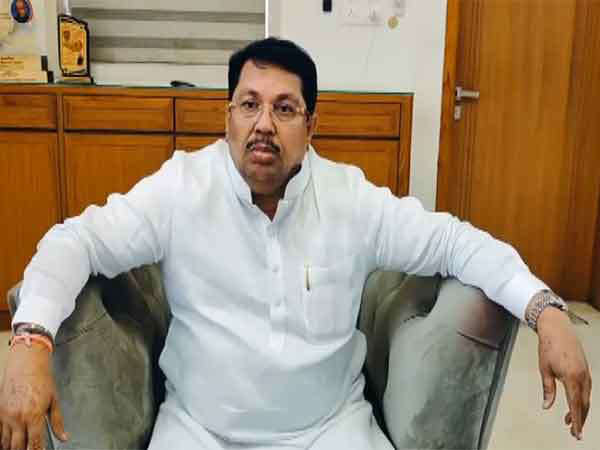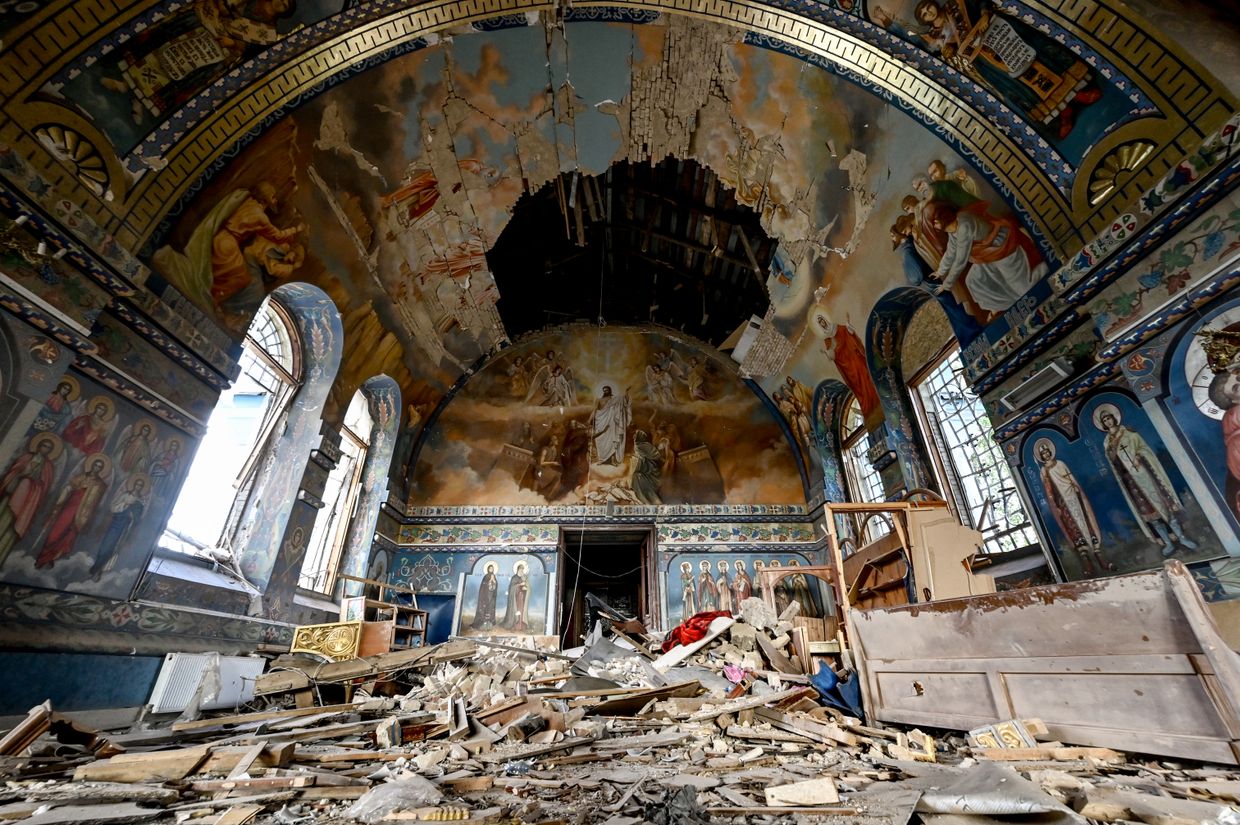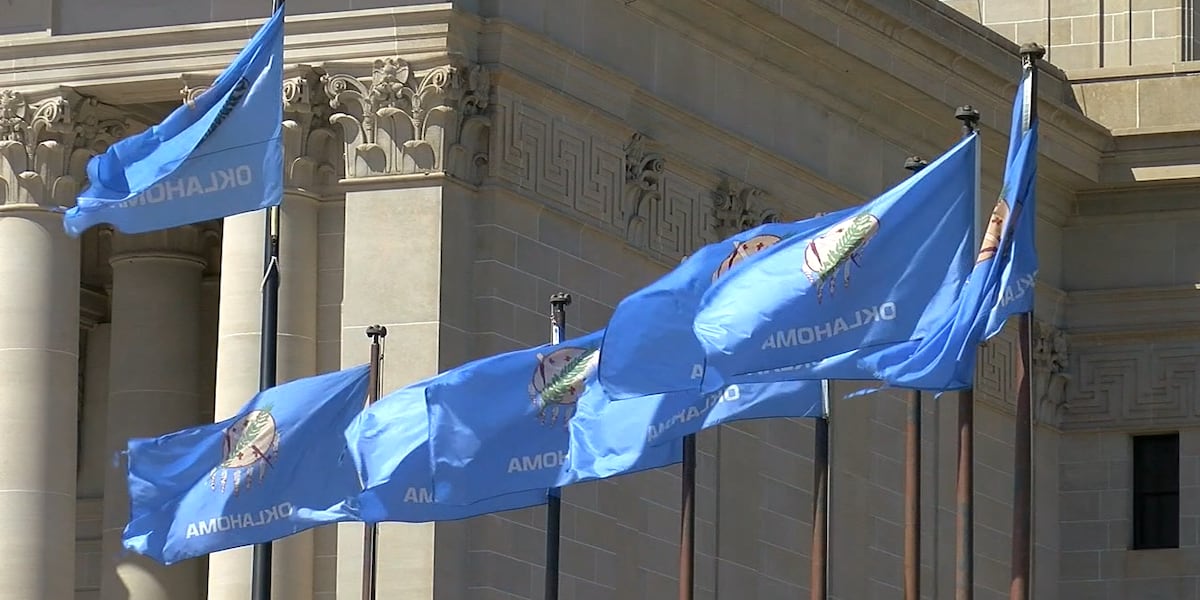Amid Controversy, Congress MLA Alleges Terrorists Exploit Religious Divisions to Destabilize Nation
Religion
2025-04-28 13:01:23Content

In a powerful statement addressing the recent Pahalgam terror attack, Congress MLA Vijay Wadettiwar condemned the violent incident, emphasizing that the terrorists' primary objective was to destabilize the nation and sow discord between religious communities.
Wadettiwar's comments come in the wake of his previous controversial remarks about the attackers' indiscriminate approach. He highlighted the broader implications of such terrorist actions, stressing that their ultimate goal is to create social tension and undermine the country's unity.
The legislator's statement underscores the need for national solidarity in the face of terrorist threats, calling attention to the destructive intentions behind such heinous acts. By targeting innocent civilians without regard for religious identity, these terrorists seek to exploit existing social vulnerabilities and create an atmosphere of fear and division.
Wadettiwar's remarks serve as a reminder of the importance of maintaining communal harmony and rejecting the divisive tactics employed by those who wish to destabilize the nation's social fabric.
Religious Tensions Unmasked: The Pahalgam Terror Attack's Deeper Implications
In the volatile landscape of contemporary Indian politics, where religious tensions and terrorist activities continue to challenge national unity, a recent incident in Pahalgam has once again brought the complex dynamics of communal relations into sharp focus. The ongoing struggle between maintaining social harmony and confronting extremist ideologies remains a critical challenge for democratic societies.Unraveling the Threads of Divisive Violence
The Political Landscape of Conflict
The Pahalgam terror attack represents more than just a singular violent incident; it embodies the intricate web of political, social, and religious tensions that have long plagued the region. Political representatives like Vijay Wadettiwar have been compelled to address the underlying motivations behind such acts of violence, recognizing that terrorism seeks to exploit existing societal fractures. Terrorist strategies often aim to destabilize national cohesion by deliberately targeting communal sentiments. By creating an atmosphere of fear and uncertainty, these groups attempt to undermine the fundamental principles of democratic coexistence. The deliberate ambiguity surrounding religious identities during such attacks serves as a calculated method to provoke broader societal reactions.Psychological Warfare and Social Manipulation
The psychological impact of terrorist activities extends far beyond immediate physical harm. These calculated actions are designed to generate widespread anxiety, erode trust between different community groups, and challenge the foundational principles of secular governance. Political discourse surrounding such incidents becomes a critical battleground where narratives are constructed and deconstructed. Representatives like Wadettiwar play a crucial role in interpreting these events, offering perspectives that either contribute to healing or potentially exacerbate existing tensions.Systemic Challenges in Counter-Terrorism Strategies
Addressing terrorism requires a multifaceted approach that goes beyond immediate security measures. It demands comprehensive strategies addressing root causes such as socioeconomic disparities, educational opportunities, and mechanisms for inter-community dialogue. Intelligence agencies and law enforcement must continuously evolve their methodologies to anticipate and neutralize potential threats. This involves not just reactive measures, but proactive intelligence gathering, community engagement, and creating platforms for constructive dialogue.The Role of Political Rhetoric in National Unity
Political statements in the aftermath of terrorist incidents carry significant weight. They can either contribute to healing and understanding or potentially inflame existing tensions. Responsible communication becomes paramount in maintaining social equilibrium. Leaders must navigate a delicate balance between acknowledging the gravity of terrorist threats and avoiding rhetoric that might further divide communities. The language used in public discourse can significantly influence public perception and collective emotional responses.Broader Implications for National Security
The Pahalgam attack serves as a stark reminder of the ongoing challenges facing India's complex sociopolitical landscape. It underscores the need for continuous vigilance, robust security infrastructure, and a nuanced understanding of the multifaceted nature of terrorism. National security strategies must remain adaptive, recognizing that terrorist methodologies are constantly evolving. This requires not just military and intelligence responses, but also comprehensive social, economic, and educational interventions.RELATED NEWS
Religion

Divine Intervention? Trump's Presidency Sparks Religious Renaissance in America
2025-05-02 11:22:03
Religion

Scholarly Showdown: Houston University Stands Firm on Hindu Religion Course Despite Mounting Criticism
2025-03-29 02:38:00
Religion

Sacred Spaces Under Siege: Russia's War Leaves 600+ Religious Sites in Ruins, Zelensky Reveals
2025-04-19 22:38:00





